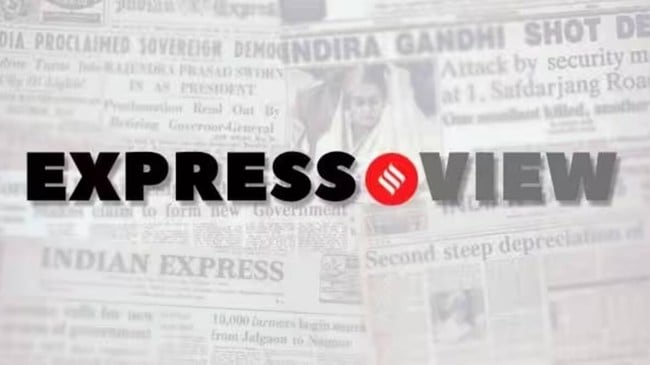Opinion As Trump clashes with US Fed, independence of central bank is being tested
The US president announced that he has fired Federal Reserve Board Governor Lisa Cook for allegedly lying on mortgage applications
 So far, the Fed has resisted the pressure to cut rates. It has kept interest rates unchanged at 4.25 to 4.5 per cent, citing the uncertainty unleashed by Trump's tariff policies.
So far, the Fed has resisted the pressure to cut rates. It has kept interest rates unchanged at 4.25 to 4.5 per cent, citing the uncertainty unleashed by Trump's tariff policies. For several months, US President Donald Trump has been criticising and attacking the US Federal Reserve and its chairman Jerome Powell for the reluctance to lower interest rates. In January, for instance, a few hours after the Fed meeting, Trump had posted on a social media platform that “Jay Powell and the Fed failed to stop the problem they created with inflation”. In April, he said, “’Too Late’ Jerome Powell of the Fed, who is always TOO LATE AND WRONG, yesterday issued a report which was another, and typical, complete ‘mess!’… Powell’s termination cannot come fast enough!” Just before the Fed meeting in June, Trump said, “So we have a stupid person, frankly, at the Fed. He probably won’t cut today. Europe had 10 cuts, and we had none. I guess he’s a political guy.” He has gone not one but many steps further since.
Trump has announced that he has fired Federal Reserve Board Governor Lisa Cook for allegedly lying on mortgage applications. Cook, whose term ends in 2038, has dug in her heels, refusing to resign, saying, “President Trump purported to fire me ‘for cause’ when no cause exists under the law, and he has no authority to do so.” Such attacks by Trump only undermine the Fed at a time when central bank independence is especially a cherished asset. As politicians are driven by short-term political cycles, and may tend to favour lower interest rates, which could adversely impact price stability, central banks, taking a longer view, are able to opt for measures that may be politically unpopular in the short run. Any political interference in the working of central banks will only erode their credibility, which is crucial for anchoring expectations.
fco Inflation, based on the personal consumption expenditures price index, rose to 2.6 per cent in June, up from 2.2 per cent in April. The forecasts accompanying the Fed’s June meeting showed that it expects inflation at 3 per cent in 2025, up from its earlier forecast of 2.7 per cent. However, there are concerns over the labour market, with fewer jobs being added in May, June and July, and indications of a possible change in monetary policy. Speaking at the Fed’s annual conclave in Jackson Hole, Wyoming, Powell said that “the shifting balance of risks may warrant adjusting our policy stance.” In the clash between the Executive and the Fed, as the latter pursues its dual mandate of maximum employment and price stability, the idea of central bank independence is being tested.





